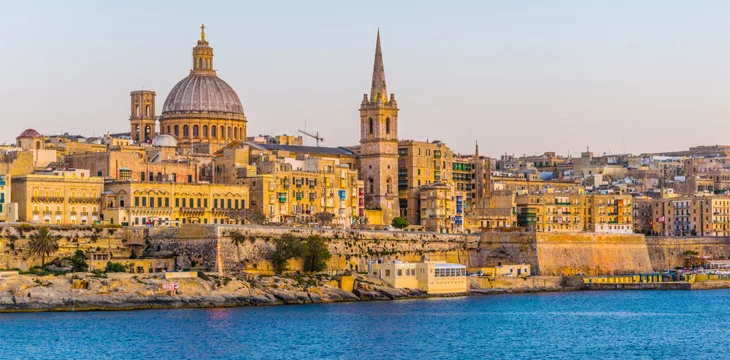|
Getting your Trinity Audio player ready...
|
Malta is set to have the world’s first government agency fully run on blockchain. The blockchain island, as the country is now widely known, will have its Registry of Companies running on a blockchain system. As reported by local outlet The Malta Independent, the new system is expected to increase efficiency as well as reduce bureaucratic procedures that the citizens have to endure when registering companies.
The system was revealed last week when Sylvio Schembri, the Parliamentary Secretary for Financial Services, visited the agency. Schembri, who has been a vocal proponent for blockchain technology in Malta, was full of praises for the system. The system comes at a time when registrations for new companies have noted a 55% increase in just six years, he stated. Schembri added:
“Through an extensive investment in IT, the Registry of Companies will be more efficient and will lessen unnecessary bureaucratic procedures. It will be run by a system which will handle all of the processes performed by the Registry of Companies. The new system will make possible the provision of new services which with the present system are not being provided bringing the agency the first in the world to be run on a Blockchain based system.”
This isn’t the first time Malta is leading the world in blockchain adoption. As we reported in February, the country became the first in the world to store education certificates on the blockchain. The Maltese government partnered with Learning Machine, an edu-tech startup on the program.
Joseph Muscat, the country’s Prime Minister stated at the time that the initiative was in line with his promise of making Malta the blockchain hub. “In 2017, we said Malta will become the blockchain island, and it has,” he stated during the signing ceremony.
But while the majority have celebrated Malta’s brave blockchain initiatives, there have been those that have expressed concerns. One of these is the International Monetary Fund (IMF). The IMF cited money laundering and terror financing as some of the main threats that the country had exposed itself to through the adoption of cryptos and blockchain technology.
Part of the report by the global financial watchdog read:
“The increasing number of financial entities under supervision, the rapid development of new products, the evolving regulatory environment and the tightening of the labor market have put the Malta Financial Services Authority under considerable strain.”

 02-14-2026
02-14-2026 




